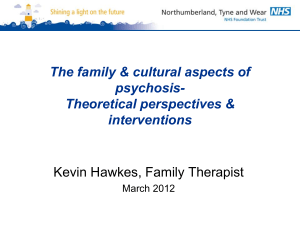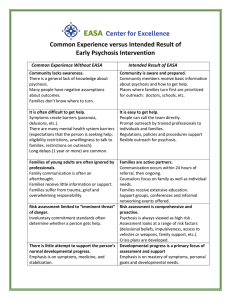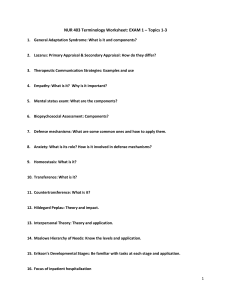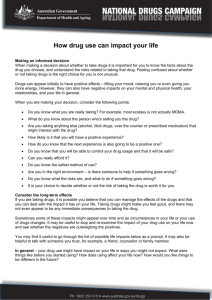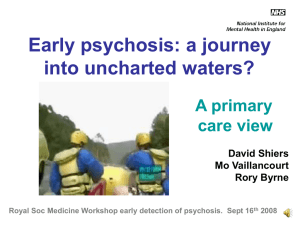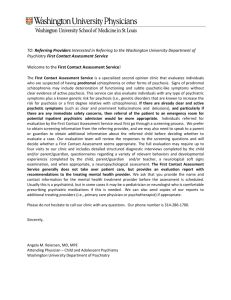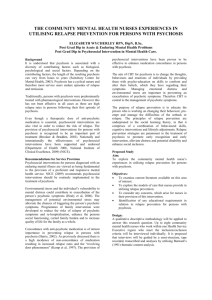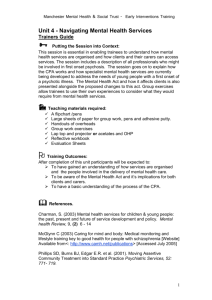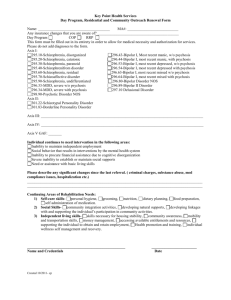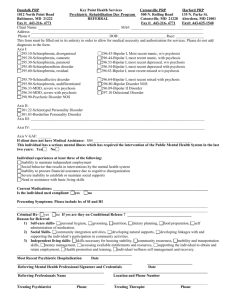michelleDavitt
advertisement
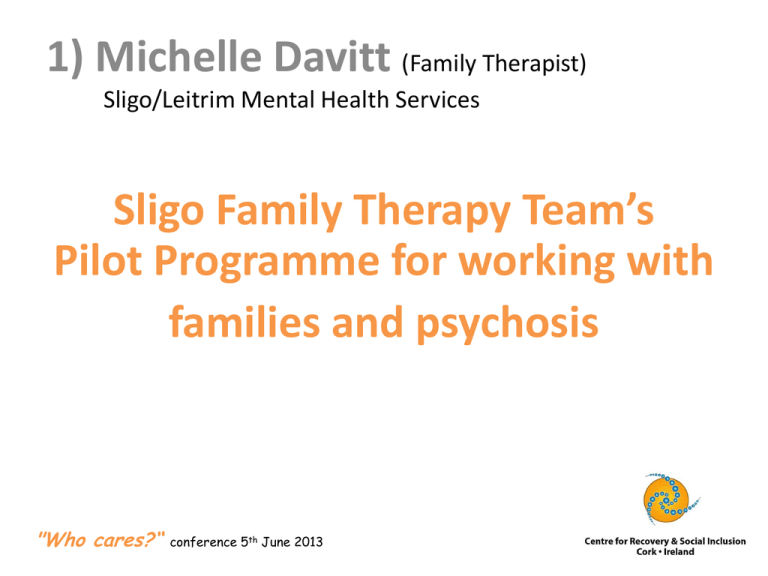
1) Michelle Davitt (Family Therapist) Sligo/Leitrim Mental Health Services Sligo Family Therapy Team’s Pilot Programme for working with families and psychosis "Who cares?“ conference 5th June 2013 Why work with families? There is robust evidence to support that family interventions for psychosis are effective at reducing relapse and improving outcomes for people with psychosis (Bustillo et al., 2001; Pfammer et al, 2006;Pharoah et al, 2006). The NICE guidelines recommend that family interventions should be offered 100% of families with psychosis who have experienced a recent relapse , are at risk of relapsing or living with or in close contact with their family. What are the benefits ? Working with families as early as possible can help for feelings of loss/sadness to be responded to directly, for information about symptoms /services to be shared with them and to include families as key partners in the individuals recovery. Developing an alliance with the family can hold the key to engagement of the client and prepares the ground for later collaboration , e.g. in times of crisis, (Burbach, Stanbridge, 2006). Many families themselves describe having difficulty coping with the emergence of psychosis and the burden this creates (Fadden, 2006). The Sligo Team’s Clinical Approach Systemic Cognitive behavioural Informative Family needs-led Collaborative Stance Competency Based Our framework for working with families Engage with family- hear their story, their understanding of development of psychotic symptoms Information sharing-symptoms/ services/ wider mental health issues Communication Training/Family Interaction Problem Solving Relapse Prevention RESEARCH PROJECT Participants were asked for feedback on the following areas: Initial preconceptions about attending family therapy Overall satisfaction with family therapy service Likes and dislikes about the service Therapeutic alliance Common problems faced by families Problems and symptoms change Coping with problems and symptoms Views on participating in the research Feedback from families on their experience of family therapy “At the start I was an emotional wreck. But I became more able to cope with how my son was when unwell. The stress reduced dramatically because we were dealing with the illness as a family, it was out in the open”. “We started communicating more about the problems. I learned how to interact with my daughter and I understood more about the illness. It took my fear away from talking to friends.”
